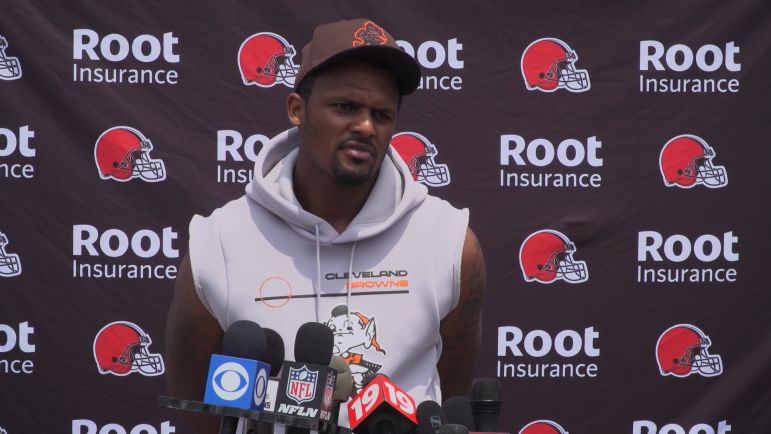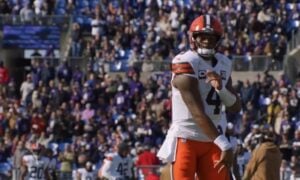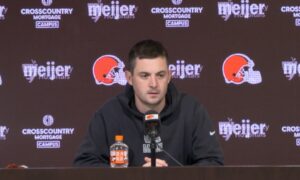A couple of days back, it was leaked to the media that the NFL might be more willing to accept a disciplinary ruling by the joint hearing officer, Sue Robinson, in the event that she hands down a suspension for Deshaun Watson of at least six to eight games. The league is reportedly seeking an indefinite suspension for at least a year.
And evidently, that’s still the plan. Following the first leak, Mary Kay Cabot of Cleveland.com cited an unnamed source disputing the characterization of the league openly accepting a punishment for Watson less than what they sought.
She writes that her source “rejected” the scenario in which the NFL accepts a punishment of six to eight games without appealing the ruling, and that the league’s position “isn’t budging”. As part of the disciplinary hearing process set forth in the 2020 Collective Bargaining Agreement, the league can appeal a disciplinary ruling and send it to the Commissioner, who has the authority to expand it.
But who was the Associated Press source? Who is the Cleveland.com source? What do they know, and who knows more? Are they in conflict with the facts or does it represent an actual division of opinion within the league offices about how to approach the next step?
Watson has just completed a third day of hearings with Robinson, but it is not clear how long it will take for her to actually make a ruling—it could still be a couple of weeks. Mike Florio of Pro Football Talk yesterday also put a damper on expectations of her ruling.
He points to the argument that the NFLPA is arguing on Watson’s behalf, which is that the CBA sets forth that there is no two-tiered disciplinary system for players versus owners, and that owners such as Robert Kraft completely escaped discipline for offenses that were at least in the same ballpark as that of which Watson is accused.
“If that behavior wasn’t something that triggered punishment for Kraft, how can it trigger punishment for Watson — especially since the Personal Conduct Policy expressly provides that owners are held to a higher standard?”, he writes.
It is important to keep in mind that this is the first major case being determined by the new process set forth in the 2020 CBA. Previously, it was the commissioner who basically singlehandedly presided over disciplinary matters.
Understandably, the NFLPA sought to change that, and to get a neutral party involved, which is only fair. They also raised the standard for discipline, even if certain generalized statements about the integrity of the game still preserve some broad leeway. But that’s not something the hearing officer is likely to take significantly into account.








